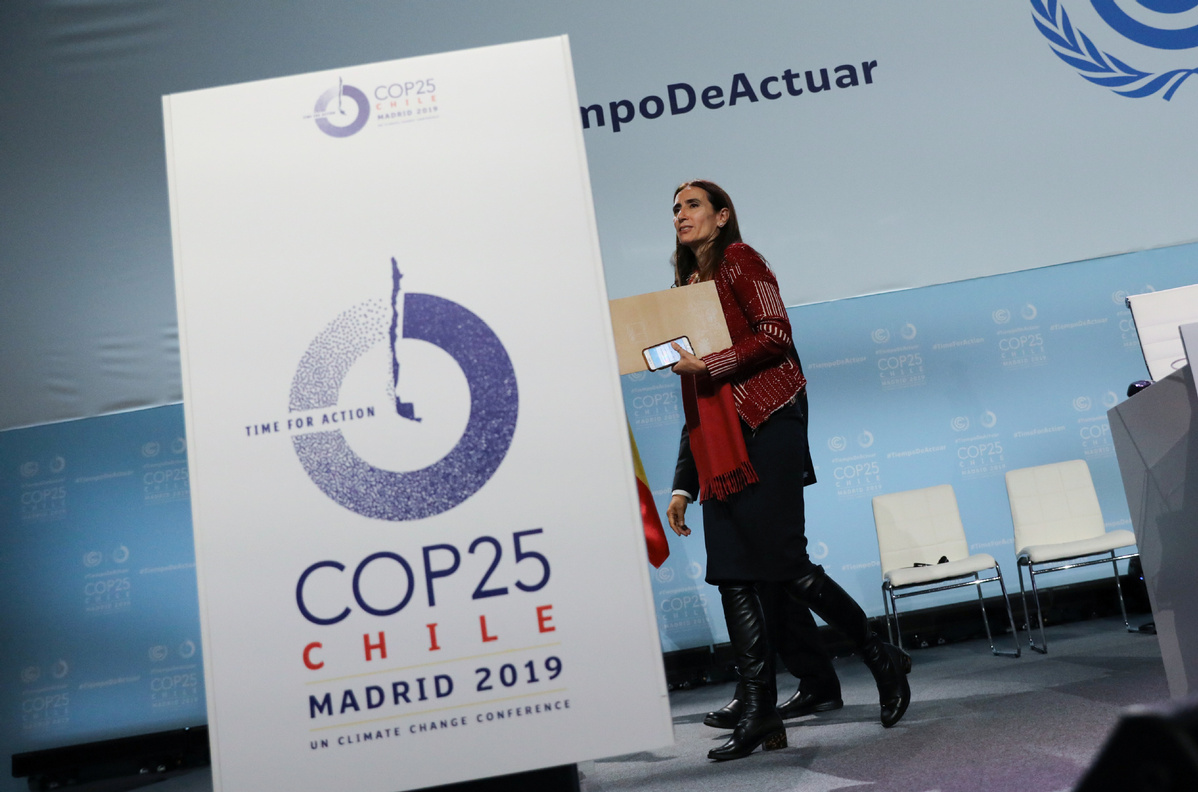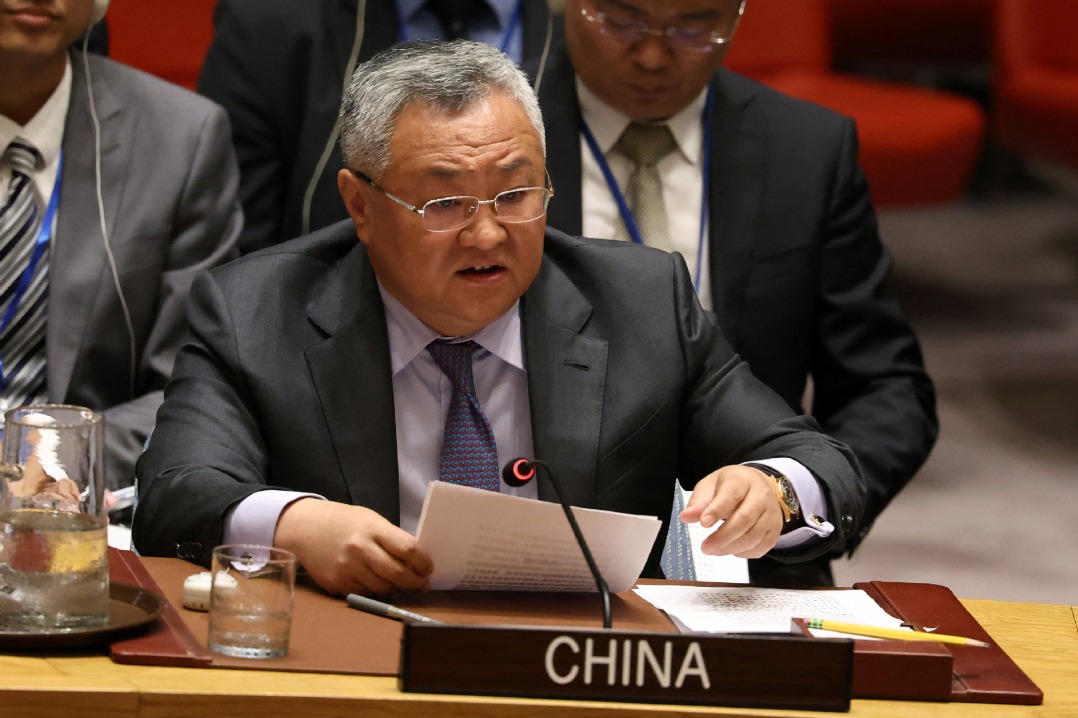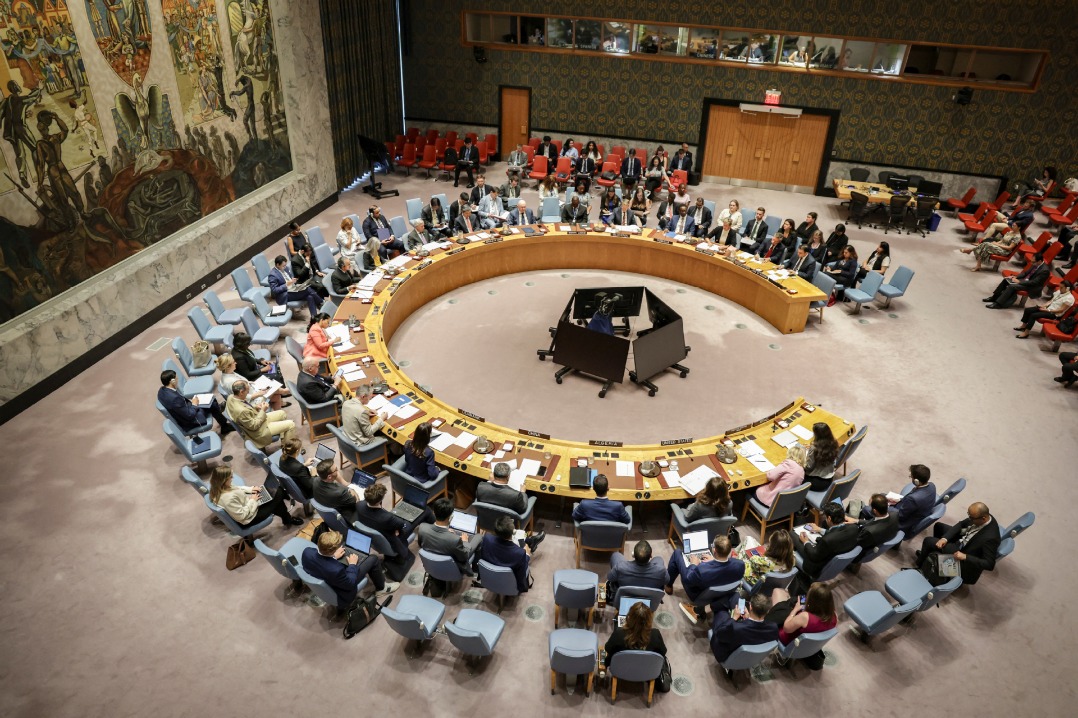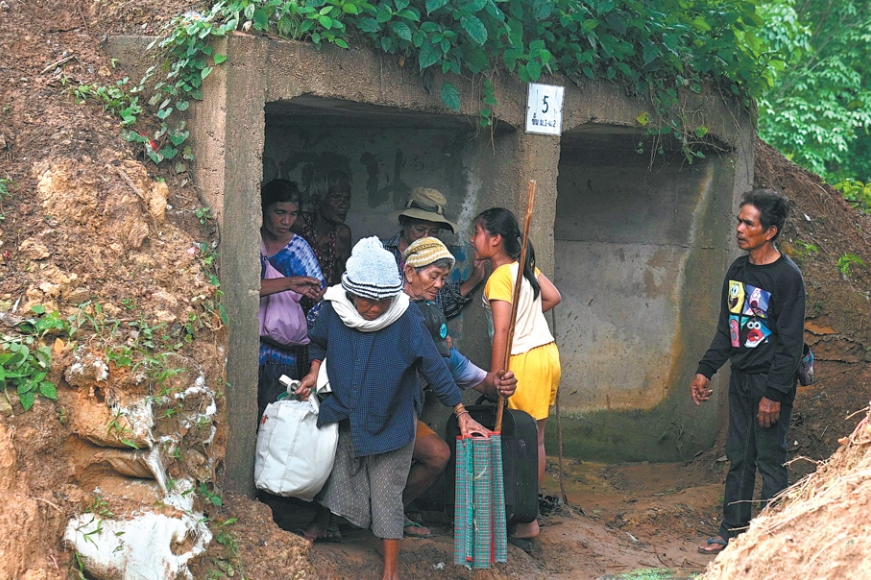Hot debate delays UN conference conclusion


This year's United Nations climate change conference in Madrid has outpaced all gatherings of its kind in running overtime.
The conference, which started on Dec 2, was slated to end on Friday. However, heated discussions over differences delayed the closing until Sunday.
The highly technical Article 6 of the Paris agreement was a major factor in the delay, and the conference concluded without consensus on rules governing it, pushing the process into next year.
It's not strange to see the Conference of the Parties to the United Nations Framework Convention on Climate Change, known widely as COP, to run overtime, but the Madrid conference surpassed COP17 to become the longest.
A key task for COP25 was to finish the negotiations over rules governing Article 6 of Paris agreement. The gathering of almost every country in the world last year managed to reach consensus on other parts of the treaty, but it failed on Article 6, primarily because of a rift between two groups of nations led respectively by the European Union and Brazil.
A major concern for the EU was Brazil's proposal to count its emissions that are absorbed by land use, land-use changes and forestry as credits that could be sold. That approach could result in double-counting emissions reductions, according to Zou Ji, president of Energy Foundation China.

Referring to the article as an "outstanding issue not resolved at COP24" in Katowice, Poland, UN Secretary-General Antonio Guterres stressed its importance in helping to curb climate change in a speech at the opening ceremony of this year's Madrid conference.
The little-known and highly technical language in Article 6 says that countries may resort to cooperation or an international carbon-trading mechanism to fulfill their carbon-cutting commitments - known as NDCs, or nationally determined contributions.
Since the cost of reducing carbon emissions is different in different countries, the market mechanism is believed to be one of the most efficient and cost-effective approaches for curbing global warming.
"Putting a price on carbon is vital if we are to have any chance of limiting global temperature and avoiding runaway climate change," he said. "I urge all parties to overcome their current divisions to reach a common understanding on this issue."
The Madrid conference soon found, however, that the article remains a hard nut to crack. People were talking about steadily at the Madrid IFEMA Convention Center, where the conference was held.
One of the key concerns for some developing countries is whether unsold carbon credits under the 1997 Kyoto Protocol will be transferable to the new Paris agreement mechanisms, and what the process for doing that would be.
Avoidance of double counting remained a key concern in negotiations this year.
The rift over rules for Article 6 remain unresolved after two weeks of closed-door negotiations. In an informal meeting to take stock of the conference on Friday - itself postponed for an hour and 45 minutes - more than 10 parties spoke and Article 6 was the most frequently heard term.
Two more similar meetings were held later. In the last one, which took place in the early hours on Sunday, however, the rifts were still there, which appeared to trigger the decision of Carolina Schmidt, the COP25 president, to personally lead a conversation to find an agreement.
"We are almost there. It's hard. It's difficult, but it's worth it. I especially need you," she said. "I know that we are very tired and know that most of you haven't slept, but we need this final effort in order to accomplish the goal that brought us all here."
Her effort failed, however. The words "regretful" and "disappointing" could be heard frequently as representatives of many parties talked about the result in the closing plenary session. Many commended the market mechanism outlined in Article 6 as having high efficiency.
"Two days without sleeping day or night. We got so close," Schmidt said, expressing hope that what was done at COP25 could be used in finding a final agreement during the next gathering.

































